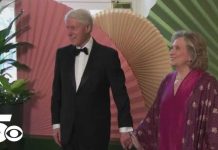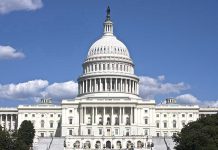
When a member of Congress posts a trove of Russian-supplied JFK assassination files online, the real story isn’t buried in the documents—it’s the political chaos and credibility crisis unleashed in the heart of American government.
Story Snapshot
- Rep. Anna Paulina Luna published 350 pages of JFK assassination documents provided by Russia, triggering fierce backlash.
- Bipartisan critics accuse her of spreading foreign propaganda and question her judgment in handling sensitive historical files.
- The documents’ authenticity is unverified, fueling skepticism about their purpose and reliability.
- The episode exposes deep vulnerabilities in how U.S. officials manage foreign influence and national narratives.
Congresswoman’s Gambit: Russian Files and Public Outcry
In October 2025, Rep. Anna Paulina Luna, chairing the House Task Force on the Declassification of Federal Secrets, posted a 350-page dossier on the JFK assassination—straight from the Russian ambassador—onto the public internet. Luna claimed the files were untouched and made available in the name of transparency. Almost instantly, media and political circles erupted. Critics from both sides, including respected conservative voices, lambasted her move as naive at best, reckless at worst. The question: When an elected official amplifies a foreign adversary’s narrative on such a sensitive American event, is it transparency or a dangerous lapse in judgment?
Within hours, the story tore through Washington. The files had not been authenticated. Experts and journalists, including seasoned JFK researcher Jefferson Morley, scrambled for translation and review. Even as Luna doubled down, emphasizing her dedication to open government, the backlash grew. Online, “Stupidest Thing I’ve Ever Seen” trended, as commentators suggested Russia’s real goal was to stir confusion and undermine faith in U.S. institutions. Some members of Congress, previously open to declassification efforts, recoiled—insisting foreign-sourced material from a hostile power deserved far more scrutiny, not a megaphone.
Russia’s Playbook: Disinformation, Discord, and the American Response
The Russian government, with its decades-long record of disinformation, seized the moment. The embassy confirmed the handover, even promising a Russian-language publication of the same documents. Analysts warned that, far from offering new insight into JFK’s murder, the files were more likely to muddy the waters—injecting Soviet-era speculation and feeding the conspiracy machine. The timing could not have been worse: U.S.-Russia relations remain fraught, and debates about transparency, secrecy, and information warfare are at a fever pitch. The Russian move, and Luna’s cooperation, played directly into Moscow’s strategy of exploiting America’s own openness and divisions.
For seasoned observers, the backdrop is familiar. The assassination of President John F. Kennedy on November 22, 1963, has never left America’s collective psyche. The Warren Commission’s lone gunman conclusion has always had detractors, and periodic releases of U.S. government files have only fueled further suspicions. In the 1990s, Congress requested similar files from Russia and was refused. Now, with a Congresswoman’s help, the Kremlin’s version enters the official record—unfiltered, unvetted, and instantly politicized.
'Stupidest Thing I've Ever Seen': GOP Congresswoman Roasted for Touting Russian Propaganda on JFK Assassination https://t.co/UknPJkec9Q
— Mediaite (@Mediaite) October 15, 2025
Ripple Effects: Trust, Scrutiny, and the Battle for Credibility
The fallout is immediate and profound. Short term, Luna’s decision generates a media spectacle and exposes Congress to ridicule. Longer term, the risk is more insidious: eroding the already fragile trust in official narratives and making the public more susceptible to foreign disinformation. Congressional protocols for handling foreign-sourced intelligence come under fresh scrutiny. Critics warn that such episodes create openings for adversaries to exploit America’s appetite for transparency, weaponizing it against itself.
Historians and researchers now face a new challenge. The Russian documents, even if eventually debunked, will circulate for years—further complicating efforts to establish a factual account of JFK’s death. For the American public, the spectacle reinforces a sobering lesson: in the digital age, even the highest offices can become conduits for propaganda. The episode’s significance goes far beyond the Kennedy case. It is a warning shot about the ease with which foreign actors can infiltrate U.S. debates, leveraging the very officials sworn to protect them. As experts and watchdogs have noted, Luna’s actions—however well-intentioned—may have handed America’s adversaries a powerful new tool.


















